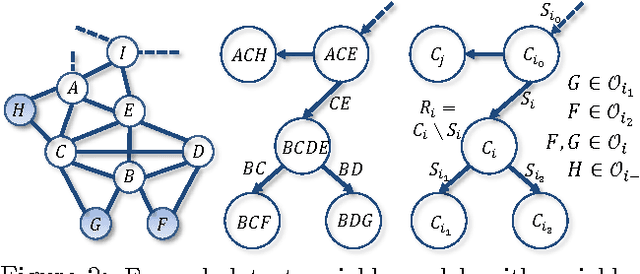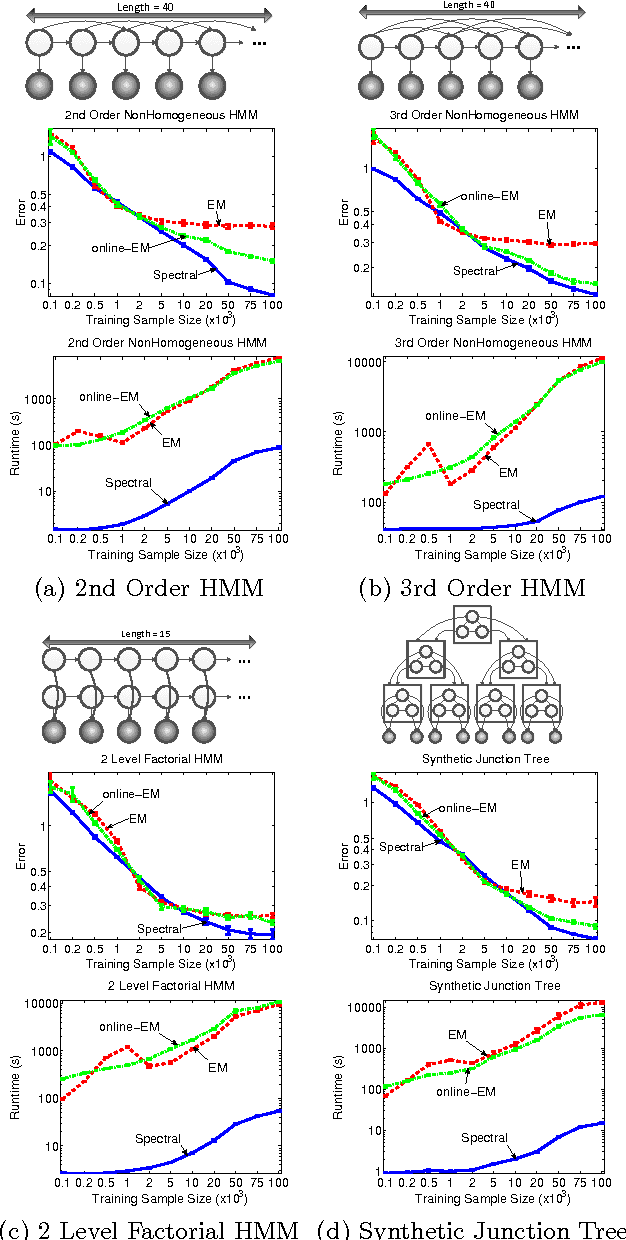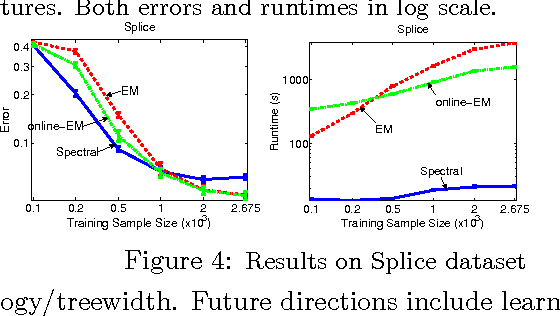Gabi Teodoru
A Spectral Algorithm for Latent Junction Trees
Oct 16, 2012



Abstract:Latent variable models are an elegant framework for capturing rich probabilistic dependencies in many applications. However, current approaches typically parametrize these models using conditional probability tables, and learning relies predominantly on local search heuristics such as Expectation Maximization. Using tensor algebra, we propose an alternative parameterization of latent variable models (where the model structures are junction trees) that still allows for computation of marginals among observed variables. While this novel representation leads to a moderate increase in the number of parameters for junction trees of low treewidth, it lets us design a local-minimum-free algorithm for learning this parameterization. The main computation of the algorithm involves only tensor operations and SVDs which can be orders of magnitude faster than EM algorithms for large datasets. To our knowledge, this is the first provably consistent parameter learning technique for a large class of low-treewidth latent graphical models beyond trees. We demonstrate the advantages of our method on synthetic and real datasets.
 Add to Chrome
Add to Chrome Add to Firefox
Add to Firefox Add to Edge
Add to Edge